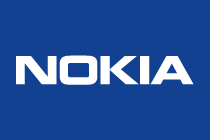Nokia is strengthening its approach to serve key enterprise markets and large ‘webscale’ customers. As of September 1, 2017 Chris Johnson has joined the organisation from HPE to lead the push into vertical industries while company veteran Mike Calabrese will oversee the webscale and large enterprise customer segments.
This move highlights the company’s commitment to expanding its customer base outside of the communications service provider market by providing enterprise customers with carrier-grade networks to support critical communications needs.
Nokia has an agenda to help drive digital transformation with our customers. For a wide variety of enterprises, Nokia is providing networks that will support a range of mission- and business-critical applications and services. Today, many enterprises are merging IT and operational communications networks, exploring how best to embrace the Cloud and the internet of things (IoT), enhance cyber-security and continually transform their operations.
With a combined global enterprise team, Nokia is reinforcing its efforts to target defined market segments where customers are demanding mission-critical, carrier-grade technology to reduce operating costs and increase reliability, resiliency and security.
Mike Calabrese, head of webscale and large enterprise at Nokia, said: “Webscale companies handle staggering volumes of business — whether that is measured in transactions, web pages, or data — and also have to accommodate huge variability in demand across applications, geographies, and events.
This requires a software-driven networking approach that features carrier-grade reliability. Many large enterprise customers such as those in finance, healthcare and manufacturing have similar requirements, and Nokia’s high-performance, critical communications technology meets their needs.”
As head of the Webscale and Large Enterprise business at Nokia, Mike is responsible for Nokia’s business strategy and sales for Internet/Web companies, cloud service providers and large enterprises globally. Previously, Mike led US Sales for Nokia, responsibile for operator, cable and cloud service providers. His previous companies include Alcatel-Lucent, TiMetra Inc. and Cisco Systems.
Chris Johnson, head of global enterprise verticals at Nokia, said: “Nokia’s expertise in mission- and business-critical communications networks has propelled the company into a leadership position in areas as diverse as private LTE networks for the mining industry, GSM-R and IP/MPLS technology for railways and packet microwave technology for power utilities.
Our innovative technology and usage-case approach enable us to bring carrier-grade critical communications capabilities to a range of vertical industries that demand the utmost in reliability, resiliency and security to support their operations.”

Chris joined Nokia to lead Nokia’s global enterprise sales organisation focused on bringing mission-critical communications technology to transportation, energy, public sector and other Enterprise customer segments.
Chris has global responsibility for business strategy and driving sales into defined segments and markets. Chris joined Nokia from HPE and has previously worked for NCR, Sequent and EMC, holding a progression of IT Sales, Sales Leadership and General Manager roles.
As the transportation provider in GSM-R, Nokia has over 100 references worldwide. Nokia technology helps transportation operators for rail, air and maritime to ensure on-time arrivals, generate non-fare revenues, better track assets and travelers, perform preventative maintenance and provide broadband for passengers and operations. For roadways, Nokia technology is used for road safety and trials for autonomous driving where 5G will be paramount.
In the energy sement, Nokia works with over 200 utilities and over 60 mission-critical networks for oil, gas and mining. Nokia technology is instrumental in enabling power utilities to better manage the impact which distributed generation and intermittent sources like wind and solar and unpredictable loads caused by e.g. electric vehicles. For oil, gas and mining concerns we are helping them automate their operations, particularly in remote, austere environments.
For public sector, Nokia has 240+ references around the world including 55+ mission-critical customers in public safety. Nokia technology is designed to increase the responsiveness of first responders, help governments support public services and engage in national, regional and local broadband initiatives.
Nokia also counts around 100 companies from the Fortune Global 500 and around 200 from the Forbes Global 2000 list as customers, supporting the digital transformation efforts of webscale and large enterprise with ‘carrier-class’ data networking technologies.
Comment on this article below or via Twitter: @ VanillaPlus OR @jcvplus






